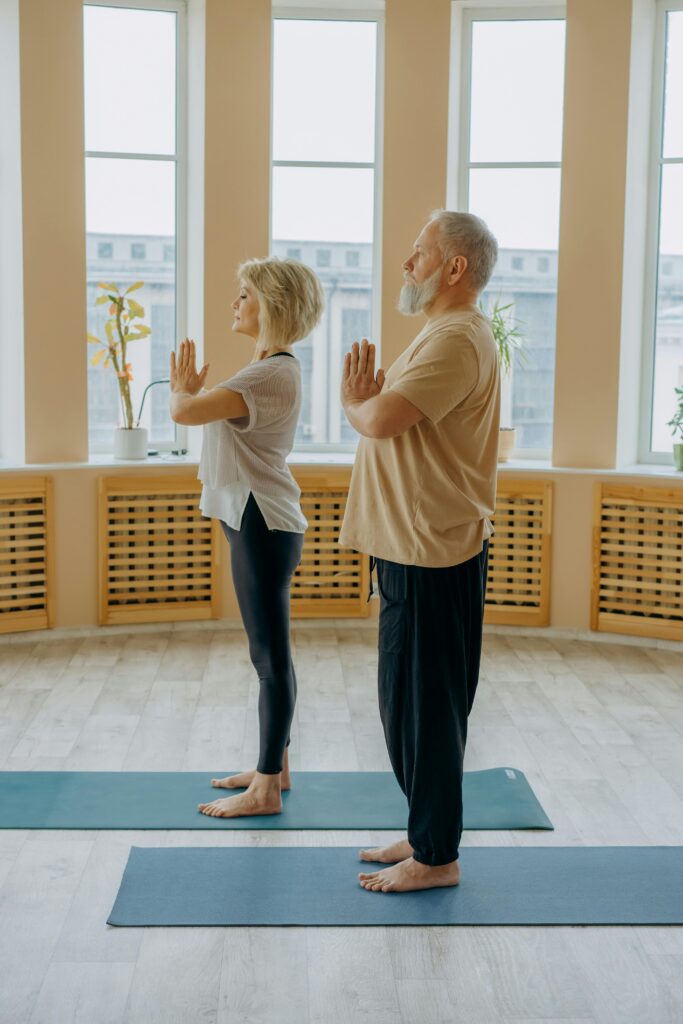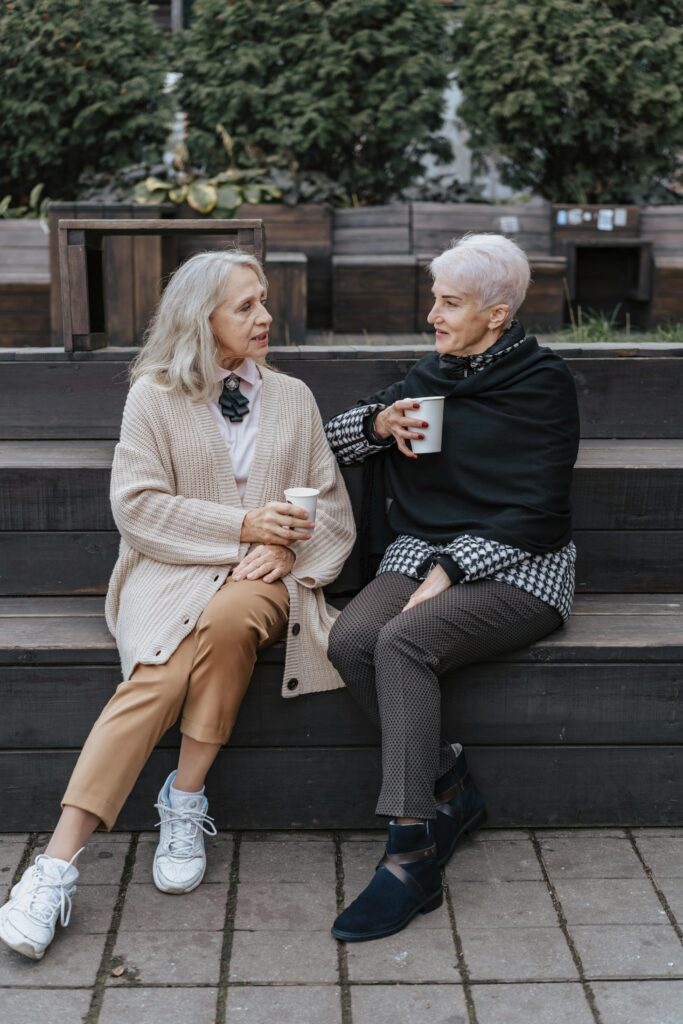Japan is known for having one of the healthiest older populations on the planet. Okinawa, a blue zone, has the highest concentration of centenarians globally. They have a strategy for living a long and happy life called ikigai. One key component of ikigai, the Japanese secret to a long and happy life, is surrounding yourself with good friends. According to this ancient philosophy, relationships and connections can make you feel that life is worth living by generating feelings of intimacy – not necessarily physical intimacy (though possible), but other types such as emotional, intellectual, experiential, creative, and spiritual.
Interpersonal neurobiology, a relatively new field, underscores the significance of human connections in our lives. It posits that humans are best understood not in isolation but in the context of their relationships with others. As Louis Cozolino, a psychology professor at Pepperdine University and author of Timeless: Nature’s Formula for Health and Longevity, points out, “Of all the experiences we need to survive and thrive, it is the experience of relating to others that is the most meaningful and essential.” This understanding of our brains as social organs reinforces the idea that a life rich in social interaction and human-to-human contact benefits our brains at every stage, particularly as we age.
It’s clear that nurturing strong, quality relationships is a powerful tool for aging gracefully. By investing in these relationships, you’re building a crucial support system that will sustain you as you navigate the later years of your life. Remember, it’s not about the number of relationships but the quality that matters most.
How can well-nurtured relationships help you age better?
Here are five benefits of nurturing key relationships:
- You establish a solid support system in your life.
By nurturing key relationships, you build a robust support system you can call upon whenever needed. By putting in the time, energy, and effort to build these relationships, you make them stronger and stronger. Knowing these people will be there for you later can make aging feel less intimidating by buffering some of the adverse effects of aging. It’s like having a safety net that you can always rely on.
- You see other people’s experiences with aging more closely.
Close relationships with others give you intimate glimpses into their lives, which means you will likely see some of your close friends and family go through their aging experiences, too. Having others you can relate to on a close, personal level can help you feel better about your experience. It’s about sharing the journey and understanding each other’s challenges and triumphs.
- You are more socially active and engaged.
Being socially active is a great way to age better. Having friends and family to spend time with helps you remain socially active and engaged, which can help you age a lot better than you would if you were alone. In one study, flourishing in close relationships and embracing community was the most important determinant of living a long life. In many other studies, social engagement was linked to better health outcomes, combating loneliness, preventing cognitive decline and dementia, and improving quality of life.

- You improve your physical health outcomes.
Nurturing key relationships as you age can improve your physical health. Engaging in social activities and interactions has been linked to a reduced risk of chronic diseases, such as cardiovascular problems, diabetes, and even certain types of cancer. A study published in the Journal of Epidemiology and Community Health found that older adults with strong social networks had a 50% higher likelihood of survival than those with limited social connections.
- You improve your mental and cognitive health.
Your social connections tremendously impact your mental and cognitive health, especially as you age. This article states, “One explanation is that social relationships help calm our stress-response system. While chronically high levels of the stress hormone cortisol wreak havoc on our physical and emotional health, experiencing safe and supportive social relationships has the opposite effect, keeping our stress-response system in check. In a study of elderly Hong Kong residents, researchers found that those who spent more time cultivating social relationships significantly dropped cortisol levels during the day, which could explain why positive relationships help us learn better, stay healthier, and live longer.”
Consider implementing these strategies to nurture your relationships:
- Be more supportive.
Show up and support the people in your lives–especially when they need it most. Make an effort to be present and helpful whenever you can. Doing so will not only help them but also strengthen your relationship.
- Be more empathetic.
Practice putting yourself in another person’s shoes, especially when they are experiencing a difficult time. Doing so will help you understand their feelings, which will, in turn, help you relate to them and strengthen your relationship.

- Honor your time together.
When you can spend time with the people you love, take it. Spending good, quality time together is an essential way to nurture relationships. Time together builds trust, brings new memories, and strengthens your bond with them.
- Keep the lines of communication open.
Communication is a vital component of any successful relationship. Ensure you keep the lines of communication open and flowing between you and the other important people in your life. Good, strong communication with each other leaves little room for misunderstandings and helps build a sense of trust.
- Be appreciative and express gratitude.
Ensure you tell the people matter most to you how important they are. Take opportunities to appreciate your relationships and show other people plenty of gratitude. When other people know you understand them, it helps strengthen your mutual bond.
- Be patient during tough times.
No relationships are perfect. All people will experience disagreements, conflicts, and issues with one another–it’s a normal and natural part of being in any relationship with another person, even someone you love and trust. During these “low” periods, be patient. Remember that relationships go through rough patches, which is expected, so be patient with yourself and the other person. You can work through your hard times and emerge on the other side of disagreements healthily.
Final Thoughts
There is an enormous body of research and studies that link building strong social connections and healthy aging and longevity. The paradox lies in the fact that social connections with friends suffer as we age. We tend to lose touch with friends as family and work demands take priority. Although this is true, we can still take control of our lives and fight for those friendships that keep us afloat during times of difficulty and add a dimension to our lives that causes us to be better humans.
The takeaway here is to find your people! It will be well worth the effort.
Be well + prosper,
Elaine xx
Read this next:
